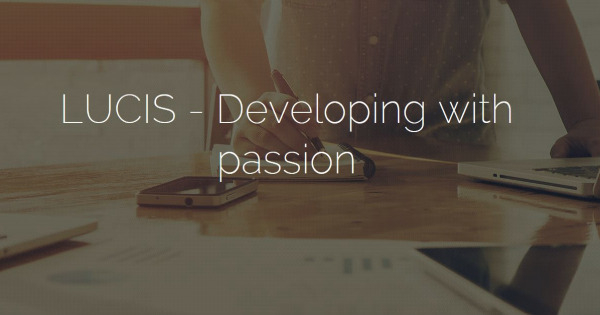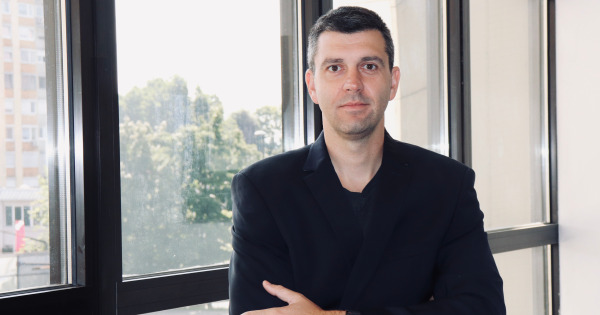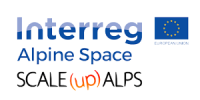Digitalization of healthcare is an opportunity and a challenge
27. 09. 2019

Modern technology is affecting various aspects of our lives, including medicine and healthcare. Digital solutions are supposed to help with faster diagnosis, encourage prevention through early detection, and help to empower patients. In many cases, healthcare IT solutions became a daunting added task for healthcare workers. Healthcare IT companies need to consider various aspects of healthcare work to create solutions that support clinicians and are seamlessly integrated into clinical workflows. We talked to Tomaž Furlan, the CEO of Lucis, providing IT solutions for Slovenian healthcare system since 2011. Tomaž talked about the specifics of technology implementation in healthcare, and the nature of collaboration with doctors in Slovenia.
Lucis became a healthcare IT player long before digital health became a popular industry. What got you interested in the sector?
Almost ten years ago, the University Medical Centre Ljubljana advertised a tender for digitalization of radiology. Our business partner, Interexport, submitted an offer since they were the distributor for AGFA. AGFA has been involved in healthcare IT since the 90'. We joined the project as subcontractors and that was the beginning of our journey in healthcare. The radiology systems we helped design at the time is still used by the majority of Slovenian hospitals and some community healthcare centers. We are still collaborating with Interexport and AGFA.
Up to this day, we designed several products: Telestroke - a telemedicine solution providing patients who suffered a stroke, high quality care even when a neurologist is not present in the hospital. Telestroke connects the Clinic of Neurology in Ljubljana with 12 Slovenian regional hospitals. Other projects include the Fabry-Care system for patients with Fabry disease (a progressive, inherited, multisystemic lysosomal storage disease characterized by specific neurological, cutaneous, renal, cardiovascular, cochleo-vestibular and cerebrovascular manifestations), which we are designing in collaboration with the hospital in Slovenj Gradec, Record-KLB systematizes care of patients with chronic kidney diseases, Cancer Registry designed for the Institute of Oncology, and Stroke registry designed for the Clinic of Neurology.

Almost a decade has passed since your entry to healthcare. What are your observations of the growing number of newcomers and rising competition?
Despite constant demands for speed and agility, digitalization of healthcare doesn’t happen overnight. Healthcare projects need more than a contractor, they require a partner that will be open to learn about real problems in healthcare and how to support them with successful solutions. Primarily, healthcare digitalization demands a shift in the mindset. Complex healthcare processes need to be reorganised and optimised with the support of IT. Development of such solutions requires highly specialized workers with rich knowledge and understanding of healthcare. The only way to obtain deep insight is through years of experience. Additionally, no provider can design all solutions for all healthcare specialists. Hence numerous providers are an imperative as is the collaboration among them. One of the key pains of healthcare IT is lack of connectivity and interoperability among these systems. Healthcare IT companies need to make the data easily accessible to authorized parties to maximize the potential of data. For all these reasons, we are not afraid of newcomers.
Healthcare IT is the main segment of your business, but not the only one. How would you compare healthcare IT projects with IT projects in other sectors?
70% of our work is in healthcare, 30% in other sectors. This distribution is optimal for us, because from the business perspective, working in healthcare in Slovenia is difficult, since healthcare is a part of the public sector. The procurement and sales cycles in the public sector are longer compared to projects in the private sector. The optimal solution for us is to complement our presence in healthcare with interesting projects from other sectors. Our credibility and brand awareness are growing with our work in healthcare, though. We are motivated to work in healthcare IT because it is an appealing industry with important societal impact.
How much time passes from the signing of a contract to project finalization in healthcare, according to your experience?
Compared to other sectors, preparation of technical specifications in healthcare requires more time. The final solution needs to combine several functionalities in one place, to support different stakeholders that are involved. The planning phase of any IT project in healthcare must include medical staff to obtain the understanding of work processes in healthcare. We spend a lot of time observing the users in their work environment during planning. This way, we avoid surprises after solution implementation. Healthcare is a sensitive industry affecting human lives. Therefore, IT projects need to be implemented gradually, not to overwhelm and overburden the users. Solutions need to be implemented on a limited scale before widespread adoption.
What are your future goals? Are you looking at scaling abroad?
I’m a realist by nature, preferring long term business stability with steady growth. My priorities are a strong team and building trust with our customers. This leads to long-term collaborations and steady, manageable growth. Outside of Slovenia, we work with partner companies as subcontractors. The options in this segment are quite open.
You also have experience with blockchain technology. How do you integrate it into your solutions?
As a service IT company, we need to keep track of all the progress in our field to stay competitive. Alongside years of experience in Java programming and related technologies, we know and use key healthcare IT standards (DICOM, HL7, IHE in FHIR). As one of the first in Slovenia, we upgraded our knowledge with blockchain technology, which enables us agility in responding to latest challenges of our customers from various industries. I am also a member and Slovenian representative of the European workgroup EBSI ESSIF User Group, working under the European Blockchain Partnership.
We mostly develop blockchain solutions in partnership with Netis, the pioneer blockchain company in Slovenia. We are simultaneously researching opportunities of the technology in healthcare. Blockchain can be applied to a range of solutions, where database security is key alongside the need for multiple user or systems access to data. Blockchain offers an opportunity to give patients control over their data, and several pharmacists are aware that testing and data collection could be improved if patients were offered incentives for data sharing.
Slovenia is a small country with a relatively large number of players. Do you see other companies as partners or competition?
IT systems development is not only a technological but also a business challenge, characterized by the demand for highly specialized employees from various fields. Success can only come from interdisciplinary teams. Because healthcare systems need to be integrated, I believe good collaboration needs to exist among IT providers. Cooperation and quality execution are among the core values of our company.
What is your current biggest challenge?
There is a lack of healthcare IT specialists in Slovenia, so we see our highly specialized employees as a strong added value helping us grow. Shortage of IT specialists is a common problem among IT companies, forcing me as an employer to constantly examine the best approaches to attract, educate and keep valuable employees. In my opinion, giving students an opportunity to learn and work in an exciting industry, constantly faced with interesting job challenges, is a good value proposition for new employees, alongside a good salary and the stability assured by regular employment.
Our recruiting strategy is to find students interested in our field of work. We direct them in their career path while being mindful that they fit in the existing team. We prefer this approach of steady growth to quick increases in the number of employees, which brings along a lot of business challenges and might not work long term. We are aware of the need to constantly re-think our work and employee satisfaction, given that foreign companies present more serious competition for specialized workers than other Slovenian companies.

